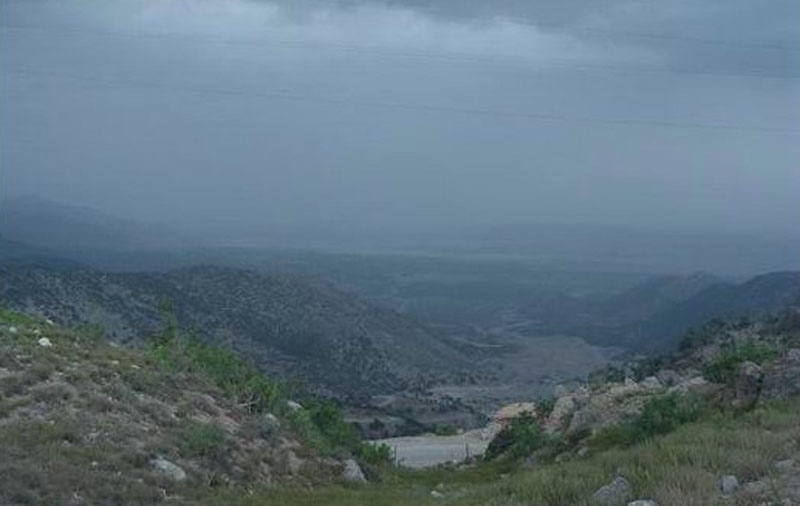 Pakistan-Afghanistan
Pakistan-Afghanistan Durand Line: Pakistan's new visa policy affects people living close to Chaman-Spin Boldak border crossing
Amid strained relationships in recent times, Pakistani immigration officials have cited security reasons to stop issuing visas at airports and border crossings to citizens of neighbouring Afghanistan.
The abrupt cancellation of a longstanding "on arrival" visa facility for Afghan nationals comes amid an increase in terrorist attacks in Pakistan, reported Voice of America.
Afghanistan citizens were issued 30-day visas at entry points in Pakistan until now.
However, they will now need to apply for a visa at the Pakistani diplomatic missions in Afghanistan before they travel to the neighbouring country.
Ismatullah Junejo, the director of the Immigration Wing at the Federal Investigation Agency (FIA) told reporters as quoted by VOA that under the revised policy, certain restrictions have also been placed on the movement of Afghans visiting the country.
After entering the country, Afghan visitors would be required to fill out special registration forms to provide details of the duration and place of their stay in Pakistan, Junejo explained.
He said the details would be provided to police stations for further verification.
Meanwhile, the decision has hit the life of people who stay close to the Durand Line.
Sadullah, married to Zulaikha (a Pakistani citizen), has no documents of Pakistani citizenship though he is the third generation raised in the Pakistani city of Chaman—an entry point to Afghanistan’s Spin Boldak district, reported The Friday Times (TFT).
He runs an automobile store in Afghanistan's Spin Boldak region.
He used to cross the border every day to run his store and then returned to his home which is located in Pakistan.
“If we the people are restricted through the passport policy, Chaman won’t be our destiny because we have only our homes here, we earn our bread from across the Durand Line in Spin Boldak,” Sadullah told TFT.
“If we the people are restricted through the passport policy, Chaman won’t be our destiny because we have only our homes here, we earn our bread from across the Durand Line in Spin Boldak,” says Sadullah.
Chaman has a population of 434,561 as per the 2017 country-wide census of Pakistan. The region lacks industry, agriculture, mines, or minerals as a means of livelihood.
Historically, the inhabitants, predominantly Achakzais, Noorzais, and Alokozais, have been entirely dependent on their agrarian lands in Afghanistan, reported TFT.
Traditionally, they would settle in the mountainous region of Toba Achakzai during the summer to graze their livestock, while in winter, they would cross the Durand Line along with their livestock herds back to Reg—the desert regions—for grazing.
The people of Chaman said the imposition of 'passport' policy by Pakistani authorities was taken without their consent.
Olasyar Achakzai, 35, the spokesperson of the Chaman Sit-in, where thousands of individuals gather to peacefully express their opposition to the government's policies through slogans and collective action, told TFT: "We are campaigning in a peaceful way, and asking for our right of peaceful movement in between Pakistan and Afghanistan without any restrictions because we have our lands, businesses, properties, families, mosques, and graveyards on both sides of the Durand Line."
“There should be a mechanism to retain the mobility in place since the British era, and let the masses keep their peaceful relations on both sides of the Durand Line,” said Olasyar.
Advocate Ajab Khan, 37, a practising lawyer at Balochistan High Court said peaceful movement is the right of the people of Chaman and every city located around the Durand Line as per international law.
"It is unfortunate that passport imposition became a tool of the state,” said Ajab Khan.
Jan Achakzai, a government official and provincial information minister for Balochistan, has supported the interim government's decision to close entry points across the Durand Line.
“We raised 50 million Afghan refugees for four decades. We faced economic crisis, but we did our best with Afghanistan. So we will avenge the losses in the Dera Ismail Khan terror attack. We honour our martyrs, terrorists are anti-Islam.” In Achakzai’s view, the Taliban regime in Afghanistan have been unable to convincingly distance themselves from the attack. “They are damaging their identity in the world,” he told TFT.
Support Our Journalism
We cannot do without you.. your contribution supports unbiased journalism
IBNS is not driven by any ism- not wokeism, not racism, not skewed secularism, not hyper right-wing or left liberal ideals, nor by any hardline religious beliefs or hyper nationalism. We want to serve you good old objective news, as they are. We do not judge or preach. We let people decide for themselves. We only try to present factual and well-sourced news.







